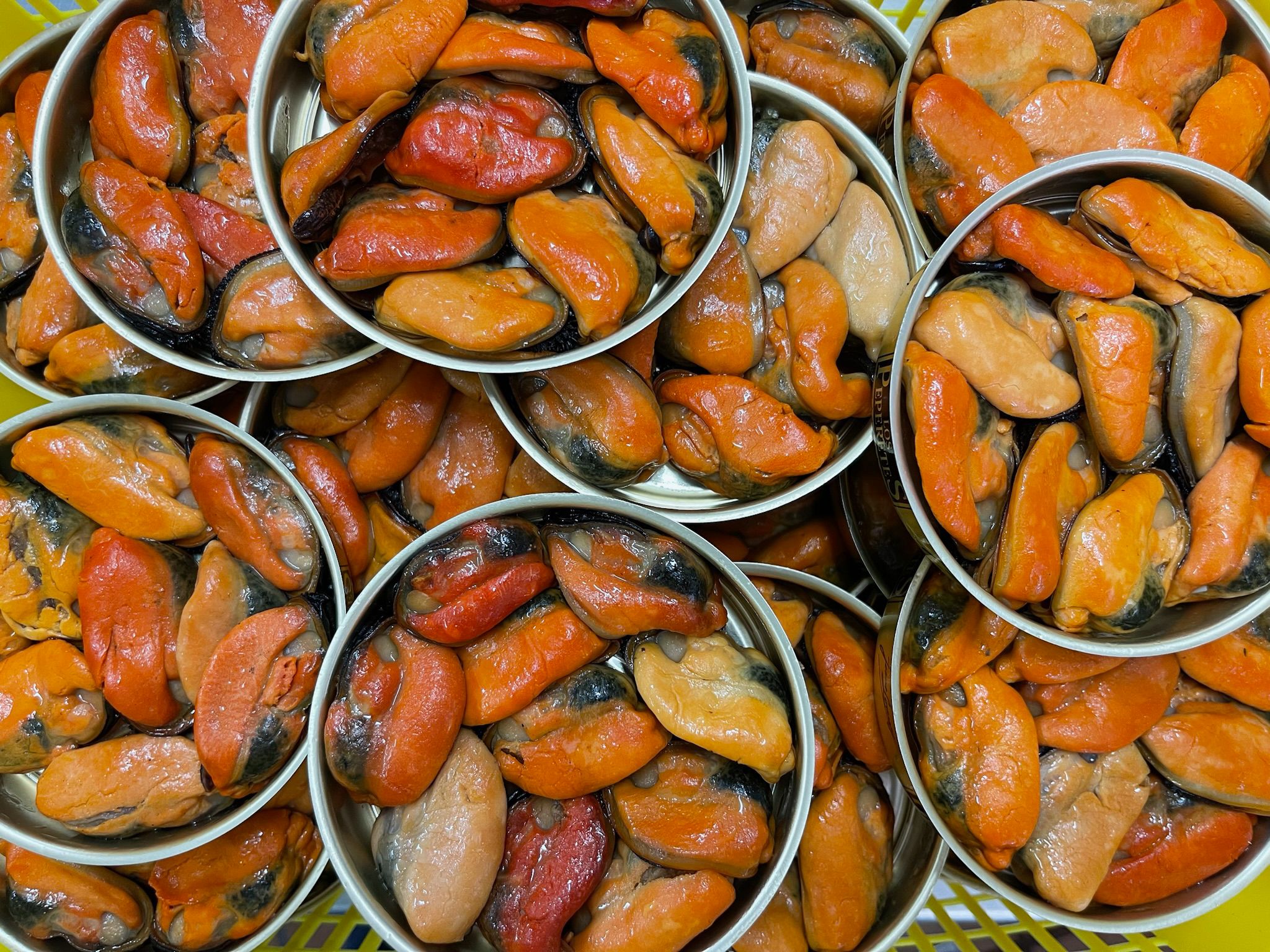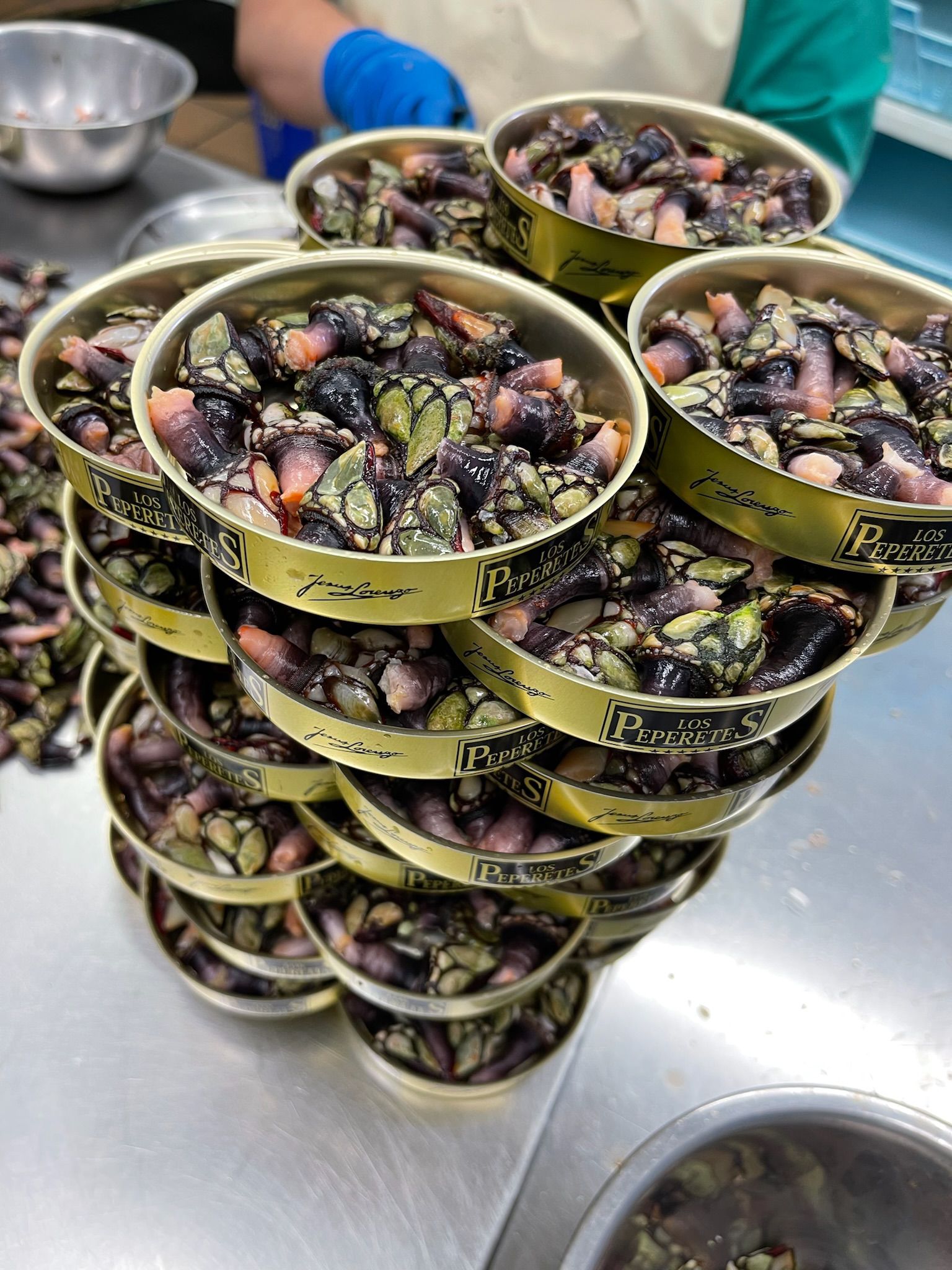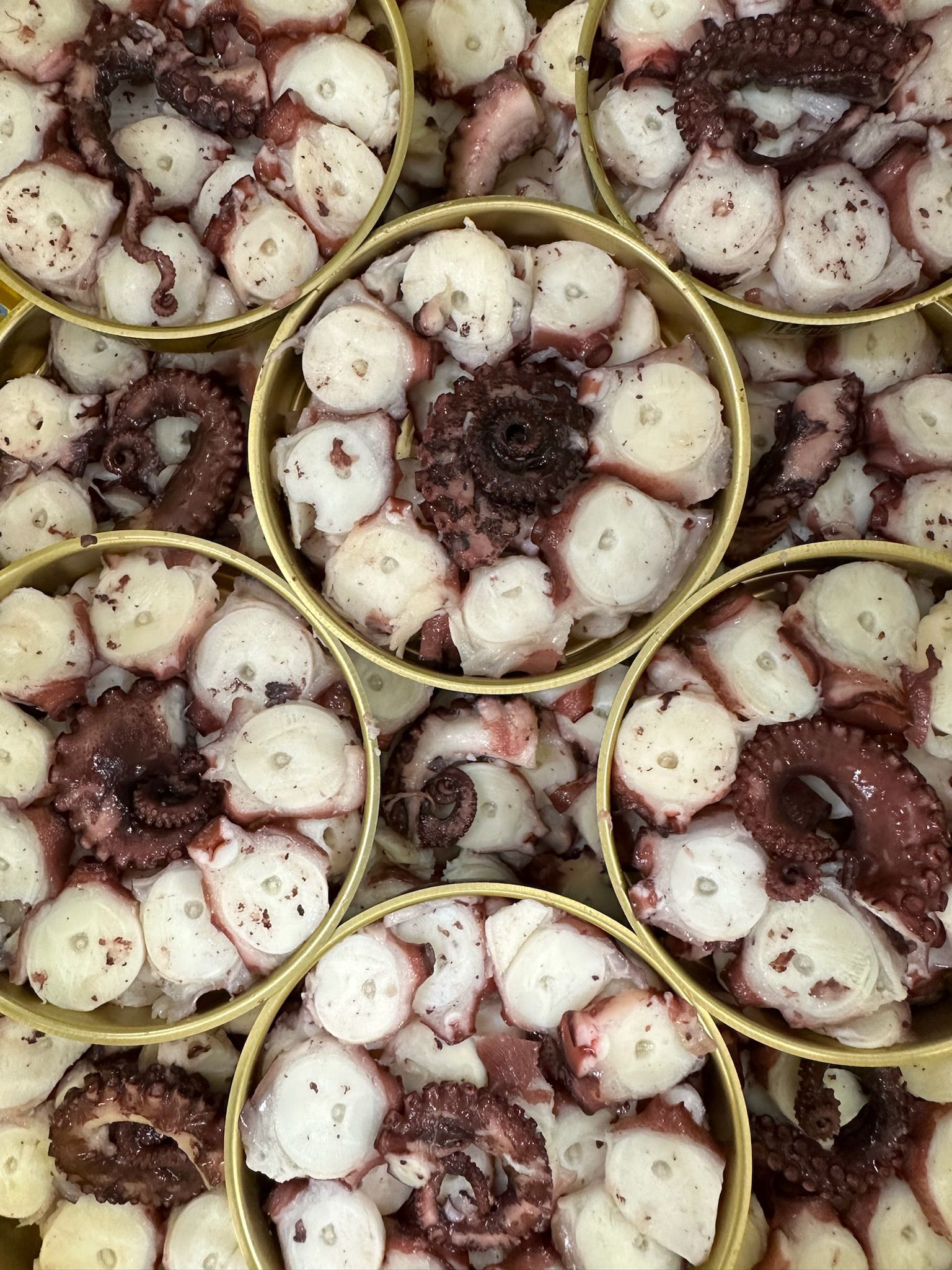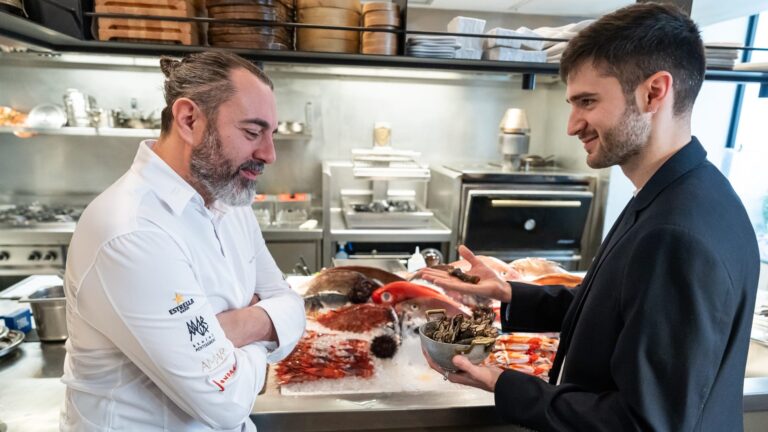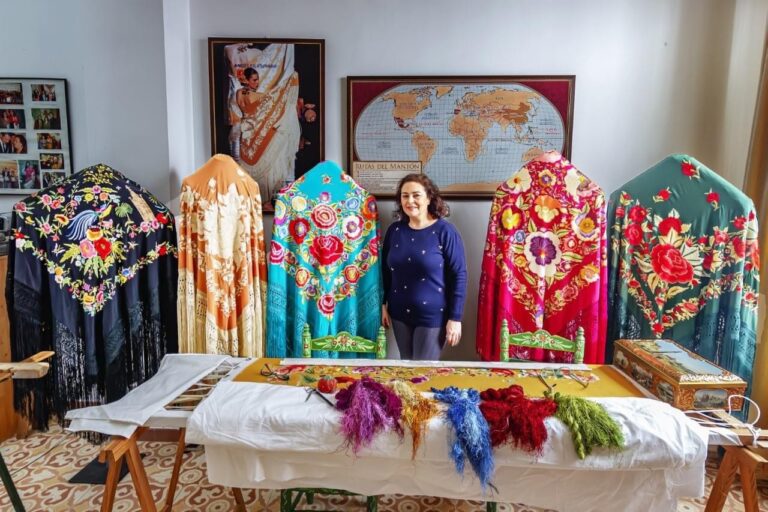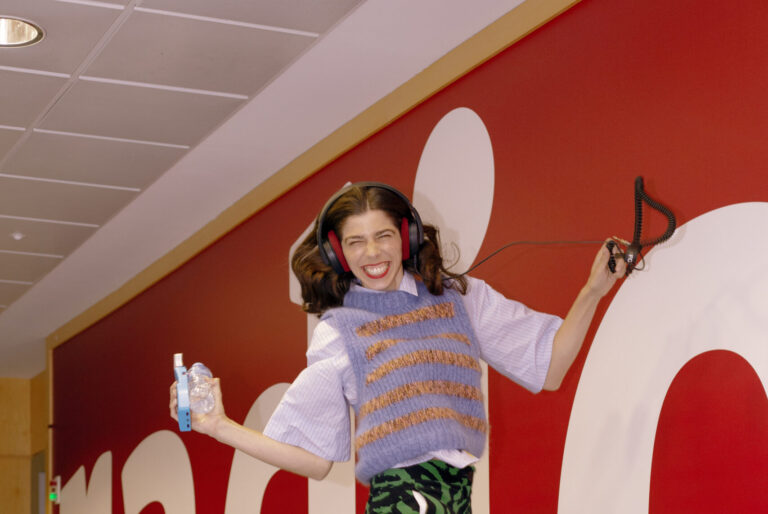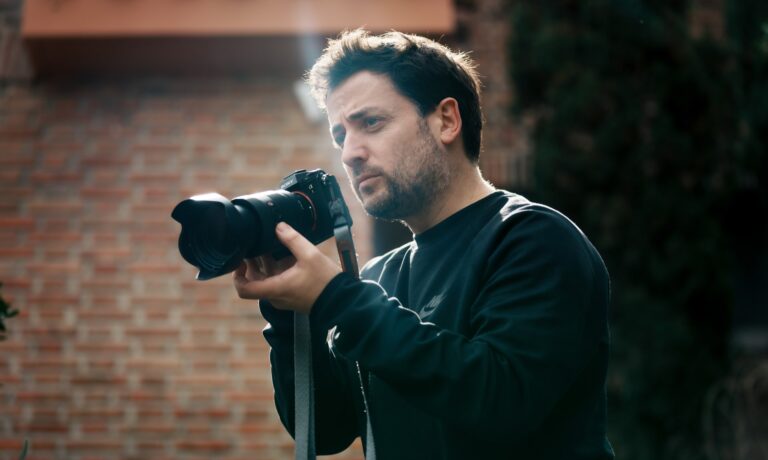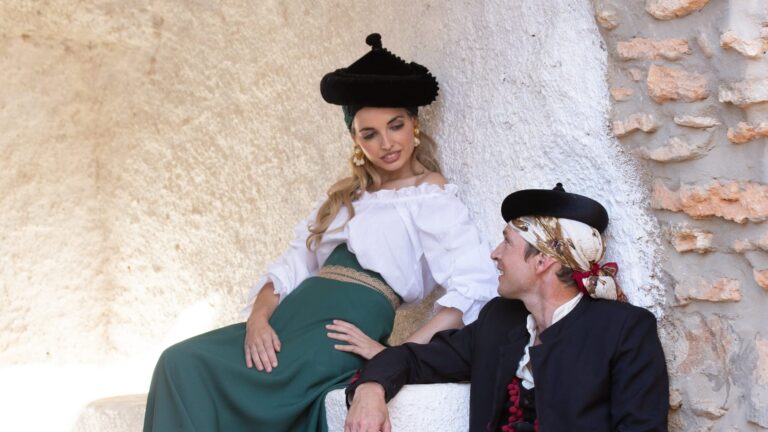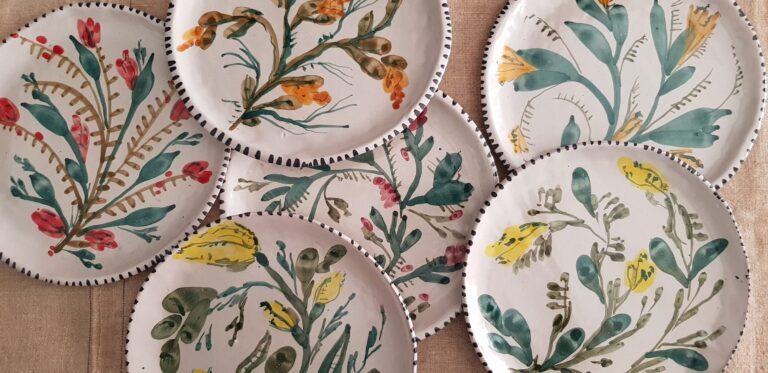Los Peperetes
Thirty cans a day, selected, packaged, and sealed by hand. This is how Jesús Manuel and María Antonia worked in the early 1990s when the gourmet canned food market barely existed in Galicia. Today, their cans can be seen in stores in dozens of countries. And they remain artisans, to the point that a can may pass through the same hands several times for quality control before going on sale.
Getting up early and going to the fish market, selecting the freshest products, preparing sauces and marinades, placing everything by hand in the cans... That's pampering the product!
As they say, their products are much more than simple canned fish and seafood; they are the result of a meticulous, artisanal process that pays homage to the richness of Galicia and its sea. Each can tell a story of effort, dedication, and love for the craft.
Today, Jesús Lorenzo Paz, general manager of Los Peperetes and great-grandson of the first Galician canners, tells us more about his life and profession:
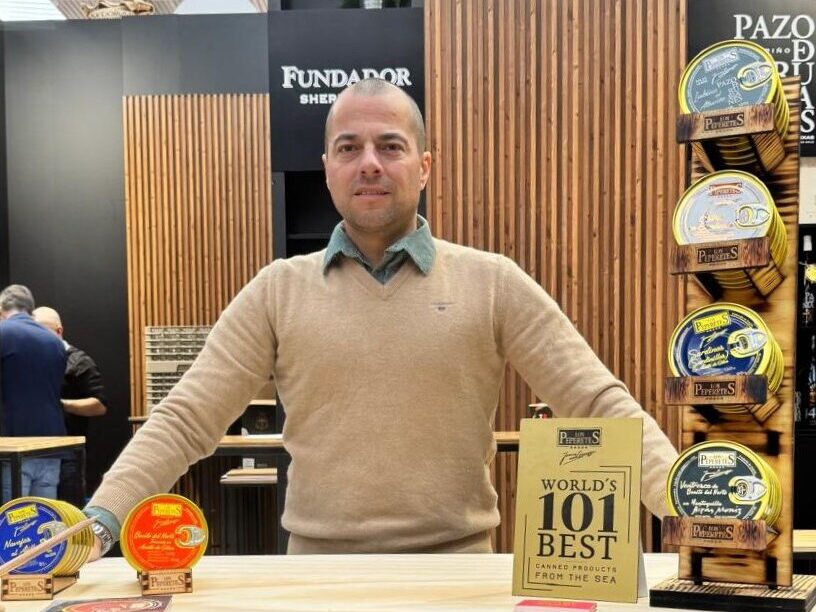
Conservas Los Peperetes – Jesús Lorenzo
Hello Jesús. What does “peperete” mean?
It's a word that has been in our family for thirty-three years, and it defines us very well, given our philosophy and way of working. My two siblings and I have adopted it as our byname. My father rescued the word from the Galician colloquial dictionary, and it evokes something pleasant, beautiful, tasty, and appealing. Gastronomically speaking, a good, rich, and well-prepared dish is a “peperetada,” and when you finish eating well, you feel like a “peperete.”
Can you summarize the process of making your canned food?
It all starts at the Galician fish markets, where we buy the best produce. Depending on the coastal area, some buyers bring us barnacles and razor clams, other cockles, mussels, sardines, or sea bass, tuna… They know what to buy for us at the auctions each season.
Once the fish or seafood arrives at the factory, we clean it thoroughly and pre-cook it to handle the raw material. Then, our workers meticulously pack it into cans by hand. Once the packaging process is complete, we take it to the sealing and sterilization room, where there are three processes: adding the coating liquid, hermetically sealing the cans, and sterilizing or autoclaving it with time, temperature, and pressure so that the seafood and sauces are fully cooked, blended, and any possible microorganisms or bacteria are eliminated.
Finally, we send a sample to the laboratory, and when it returns with approval, we apply the labels by hand.
As a Galician and a diner, are any of your products your favorites?
Of course. We have more than fifty products, and of all of them, my favorite is the sea urchin caviar, with a flavor of iodine and salt, very marine, and that describes Galicia. Then there are razor clams in garlic, which recently won the award for best-preserved seafood in the world. Ventresca in butter (in collaboration with Airas Moniz) and sea bass in Albariño sauce (with Pazo de Rubianes wine) round out my favorites.

Do you have any hobbies outside of your work?
Many. I'm very active, I do sports, especially enduro and road motorcycles, the gym, CrossFit, snowboarding, and cycling. But above all, I enjoy food with family and friends, traveling, and getting ideas from the places I visit.
What's your favorite spot in Galicia and why?
We're in the fishing port of Carril and live above our workshop. Carril is a beautiful village, at the Arosa estuary, opposite the Cortegada Island. I wouldn't change it for anything.
Now you have other responsibilities, but have you ever canned with your own hands?
Yes, I've experienced all the company's processes in its thirty-two years of history: buying at the market, packaging, cleaning fish, cooking seafood... I started working with my parents, who founded the company in the early 1990s, when I was about fifteen.
Who would you like to sit down with and enjoy one of your cans paired with a good Albariño?
It's a complex question... difficult to answer... I've been fortunate enough to share a table with great personalities in sports, politics, and television, but if I had to choose one or more people, I would choose my family and my friends, with whom I feel most comfortable every day.
Is there any dream you have yet to fulfill, personally and/or professionally?
Professionally, we are experiencing one of the most beautiful moments for the company, reaching many countries, receiving awards, and collaborating with great chefs. I lead a quiet and stable life, with a close-knit family, health, and well-being, so I'm living that dream now.
Where can we apply the terms "ecology" or "sustainability" in your business?
We are a small artisanal workshop and have almost no waste. Furthermore, our products are processed in season, and sourced from respectful fishing methods, respecting fishing sizes and seasons.
Also, more than a decade ago, we switched from tinplate (difficult to recycle) to aluminum, which has no interior varnish and is much easier and cheaper to recycle.
In times when healthy eating is so important, how do you see the future of artisanal canning? Is your canned food healthy?
In my opinion, canned seafood and fish are some of the healthiest products you can find on the market. The sterilization process eliminates bacteria and microorganisms, extending the product's shelf life. We don't need to add additives to our products; sea salt, spring water, and olive oil are the only preservatives used in the sauces and seafood in our cans.
Our previous guest, María José Huertas, left this question open for the next protagonist: What wine would you drink with me, and where?
Without a doubt, an Albariño from Pazo de Rubianes on a boat along the Arosa estuary, to the windward shelter of Cortegada Island.
Can you leave us a question for the next protagonist to answer?
Yes, how artisanal is your occupation?

